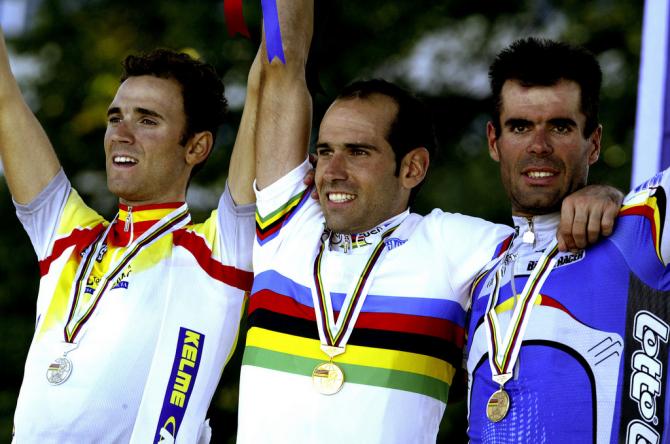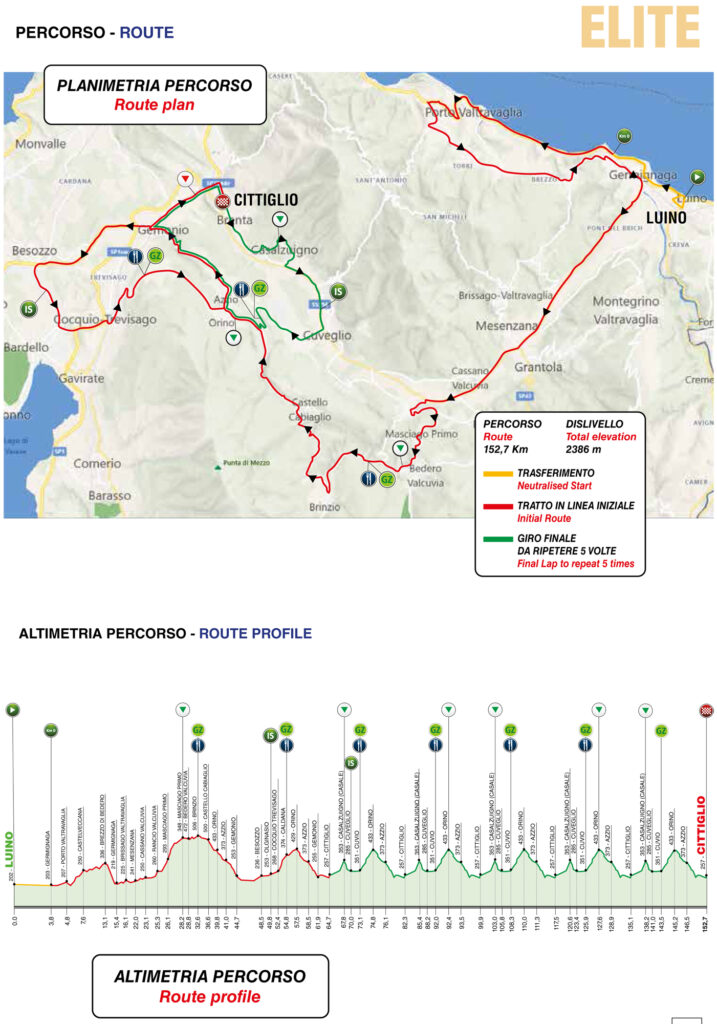Former world champion Igor Astarloa stays ahead of Giro d'Italia peloton
Retired Classics rider now driver for Grand Tour regulator
The latest race content, interviews, features, reviews and expert buying guides, direct to your inbox!
You are now subscribed
Your newsletter sign-up was successful

Thirteen years after taking his World Championships victory with a lone breakaway in the Canadian city of Hamilton, Igor Astarloa remains in the peloton - but with a very different kind of role.
Astarloa is now working as a motorbike driver for the Giro d’Italia’s regulator, Marco Velo, who is responsible for coordinating the Giro’s motorized traffic at the head of the peloton. For Astarloa - the winner of the World’s in 2003 and the first Spaniard ever to win Fleche Wallonne that year, but whose career was curtailed by an adverse biological passport case in 2009 - it’s a job which combines both his love of motorbike racing and of cycling.
As the regulator’s driver, positioned just ahead of the peloton, Astarloa has a better view than almost anybody of the Giro d’Italia as it races the length and breadth of Italy. “I’m privileged to have that position,” the 40-year-old Basque tells Cyclingnews.
How Astarloa ended up working for RCS was through Velo, a former teammate at Milram and Mercatone Uno last year. “Marco always knew I I liked motorbikes and driving them and he got in touch with me to see if I wanted to work as his driver” Astaralo has worked in the majority of RCS races in that position, from Milan-Turin, Giro di Piamonte, Il Lombardia and Abu Dhabi through to Dubai, Strade Bianche, Tirreno-Adriatico, Milan-San Remo and now, for a second time, the Giro d’Italia.
“I’m glad to be here because I spent almost all my career racing with Italian teams,” Astarloa commented, “and I’ve always loved the Giro d’Italia and Italy. As if that wasn’t enough, this is a great excuse to come over here a few days before the Giro starts and spend some time with my friends who live near Lago di Garda.”
His former racing experience as a pro of ten years standing is vital, he says. “An organisation like this often tries to use ex-riders who are good motorbike drivers in these positions, because they know we can read races and anticipate situations before they actually happen, which is an advantage for our job.
“You’ve always got to stay focussed and alert. In the last few months because there have been a lot of accidents involving motorbikes, we’re in the public eye. So although you can’t guarantee there won’t be crashes, you have to try as hard as possible to ensure they don’t happen and above all disturb the riders as little as possible. They are the top priority.”
The latest race content, interviews, features, reviews and expert buying guides, direct to your inbox!
Astarloa, like much of the the peloton, prefers to take things stage by stage rather than looking too far ahead. “I’ll read ahead a little bit in the route, maybe two or three days, but it’s like the riders. In fact, in some ways I still identify with them.
“Obviously, it’s far, far easier on a motorbike, but when it’s a really hard day for them it tends to have been a fairly tough day for the drivers, too. In the same way, too, when you reach the last 50 kilometres of a flat stage, that’s when the stress levels really start to rocket for us, too. The time flies by in that last hour.”
As for fellow Basque Mikel Landa and how he rates the Sky rider’s chances in the Giro d’Italia, Astarloa says he first started to follow him closely in last year’s race, where Landa took two mountain stages and third overall.
“I was surprised to see how well he did last year, because he’d never been a rider for the overall in a Grand Tour before. He rode excellently in the first week and I can remember in the second he told me his big worry was how he would cope in the third and whether he’d stay as strong. But he did.
"The key thing this year is to show that 2015 was no one-off result, and personally I think he can win the Giro d’Italia. He was going very well in the Vuelta last year, won the hardest mountain stage and this year he’s won a stage of País Vasco after barely racing beforehand, as well as Trentino.
“The question is whether he has improved in the time trials, as we will see on Sunday in Chianti and at the same time, whether his rivals feel that they want to try and eliminate him from the running beforehand. I’m pretty sure they’ll try, because they know that if he gets through to the third week with any kind of option on GC, he’ll start to strike back.
“It’s a bit like Alberto Contador in the 2008 Giro,when they didn’t get rid of him in the first week even though he had poor form and came to the race under-prepared, and then he got better and better, turned the tables on them in the last week and won it outright.”
But, regardless of how Landa races, Astarloa will continue to enjoy his work. As he says with a grin, “It’s really interesting seeing the Giro d’Italia from the front side of the peloton peloton, because when I was racing, I was never good at Grand Tours, so all I saw was the back end of the bunch!”
Alasdair Fotheringham has been reporting on cycling since 1991. He has covered every Tour de France since 1992 bar one, as well as numerous other bike races of all shapes and sizes, ranging from the Olympic Games in 2008 to the now sadly defunct Subida a Urkiola hill climb in Spain. As well as working for Cyclingnews, he has also written for The Independent, The Guardian, ProCycling, The Express and Reuters.

